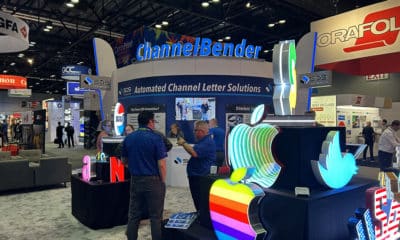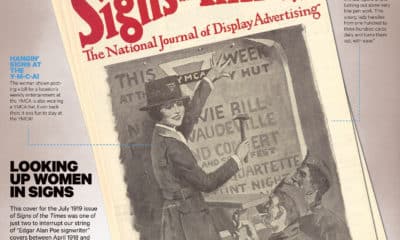The last big, but not mushrooming, who-owns-the-software argument was over cell-phone access. President Obama, last August, ended it by signing what amounted to a temporary cease-and-desist order that prevented cell-phone giants from dominating your choice of carriers. Essentially, he signed bill S. 517, the Unlocking Consumer Choice and Wires Competition Act, which allows consumers to unlock their mobile devices (meaning you can change carriers without an exorbitant fee).
Until that moment, you may have owned the cell phone, but you had to comply with the carriers’ strict rules, so your ownership worked more like a lease contract.
Back then, it was illegal for you (or others) to "unlock" your cell phone for use on other networks without the original service-provider’s permission. The President’s signature changed this, but the Library of Congress copyright office, the U.S. policy maker, still retains the power to determine if cell-phone unlocking is legal. Next year, it could, but probably won’t, restore the ban.
So, we got past that, right?
There’s more.
Ask any farmer.
What about the software in your new car or shop truck? Or, the OS or RIP software in your digital printer, CNC router — the systems in your Macbook — or Adobe’s many design programs? Who really owns what and, more importantly, can the software developer control or restrict your use and access to the software codes — and will the processing device function without it?
Advertisement
In a sense, no.
Ask any farmer who owns a newer John Deere tractor.
Or, read the Digital Millennium Copyright Act (DMCA), a U.S. copyright law that “… criminalizes production and dissemination of technology, devices, or services intended to circumvent measures that control access to copyrighted works. It also criminalizes the act of circumventing an access control, whether or not there is actual infringement of copyright itself.”
In plain English, it says you shouldn’t mess with locked-technology devices’ software, because the real software owner can smack you down, even if you own the carrier device, be it a tractor or Adobe Lightroom™.
Wired magazine, in February, headlined a feature as “New High-Tech Farm Equipment is a Nightmare for Farmers” where Kyle Wiens, co-founder and CEO of iFixit™, an online repair community and parts retailer, told of not repairing a newer John Deere tractor because he couldn’t access its computer system.
He wrote, “One hour later, I hopped back out of the cab of the tractor. Defeated. I was unable to breach the wall of proprietary defenses that protected the transmission electronic control unit (tECU) like a fortress. I couldn’t even connect to the computer. Because John Deere says I can’t.”
Wiens said today’s agribusiness equipment is both complicated and proprietary. And, more than ever, farmers are dependent on dealers and manufacturer technicians to make repairs they once easily made. He also said the cost of repairing modern tractors has soured a lot of farmers on computerized systems.
Advertisement
“We Can’t Let John Deere Destroy the Very Idea of Ownership” is the title of another Wired magazine feature, where, in April, Wiens said “John Deere and General Motors want to eviscerate the notion of ownership.” He said we pay for the vehicles, but, according to the vehicle manufacturers’ corporate lawyers, we don’t own them.
Lockout defense
In an official paper presented to the U.S. Copyright Office, General Motors LCC recently presented comments that opposed any exemptions to the DMCA’s prohibition against the circumvention of technological protection measures that control access to copyrighted works. It said the copyright office should deny a proposed exemption for Class 21, which states:
“Computer programs that control the functioning of a motorized land vehicle, including personal automobiles, commercial motor vehicles, and agriculture machinery, for purposes of lawful diagnosis and repair or aftermarket personalization, modification or other improvement, under the exception as proposed, circumvention would be allowed when undertaken by or on behalf of the lawful owner of the vehicle.”
GM, its affiliates and joint ventures, manufacture vehicles in 30 countries, it builds and sells Chevrolet, Cadillac, Baojan, Buick, GMS, Holden, Jiefang, Opal, Vauxhall and Wuling brands. Further, its in-vehicle, OnStar safety systems are available on most of its vehicles, along with at least 30 purpose-build, automotive, electronic-control units (ECUs) that control in-cab and vehicle safety and security systems critical to vehicle operation.
General Motors is the front-running fighter here, but you can bet all vehicle manufacturers are watching the bout.
You can see the manufacturer’s point — tinkerers and even skilled mechanics, allowed access to complex software programs and sensor systems, could cause numerous problems.
One solution might be after-market replacement systems that allow access or system tradeouts, which, of course, would void any warranty. Would a later buyer know the system had been replaced?
Advertisement
Imagine the lawsuits.
No longer supported?
How far into the past should the manufacturer’s closure extend? Writer Gabe Nelson, in the April 27 issue of Automotive News, said GM is being forced to cut OnStar service to many vehicles in Canada because the country’s cellular service providers are deactivating their outdated 2G networks. Vehicles sold with OnStar before the 2015 model year rely on 2G; they will need a new wireless chip to access the service, Nelson said.
Nelson quoted Gartner Inc. automotive analyst Thilo Koslowski, who said automakers may eventually face legislation that requires them to specify how long they will support connected-car services. Koslowski said it’s not practical for any business to support its products over a long time frame and that car owners may soon be required to buy upgrades, to keep their vehicles current.
Imagine an Adobe-like subscription contract that provides automatic, wireless upgrades, zipped into your next vehicle purchase contract, Will the dealers and finance companies incorporate the software service into the payment plan, to harvest the added interest?
Doesn’t the used-vehicle market figure somewhere in here? Suppose GM decided to no longer support an aging system, just as Microsoft has recently done with Windows XP and Office 2003? Wouldn’t such action relegate the affected vehicles to junk?
And, will title-transfer systems be modified to define software ownership? What about salvage, non-OEM parts and used parts?
What about violation enforcement?
Most importantly, vehicle ownership, to many people, is a much more personal matter than, say, one has with their PC or iMac. Imagine, for example, telling a West Texas buyer of a new Dodge RAM that even though he bought his truck, he doesn’t really own its components. Nor can he ever meddle with the computer-based tuning.
You’d be better off chucking a diamondback rattler onto the (heated-leather) seats.


 Photo Gallery1 week ago
Photo Gallery1 week ago
 Ask Signs of the Times2 weeks ago
Ask Signs of the Times2 weeks ago
 Paula Fargo1 week ago
Paula Fargo1 week ago
 Real Deal4 days ago
Real Deal4 days ago
 Photo Gallery1 week ago
Photo Gallery1 week ago
 Women in Signs2 weeks ago
Women in Signs2 weeks ago
 Women in Signs1 week ago
Women in Signs1 week ago
 Signs of the Times1 week ago
Signs of the Times1 week ago







